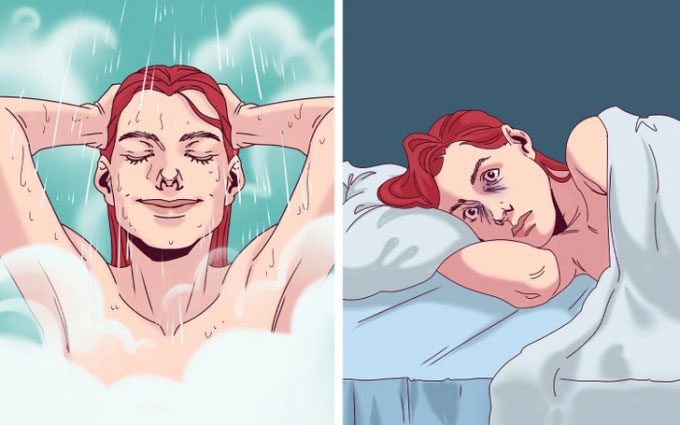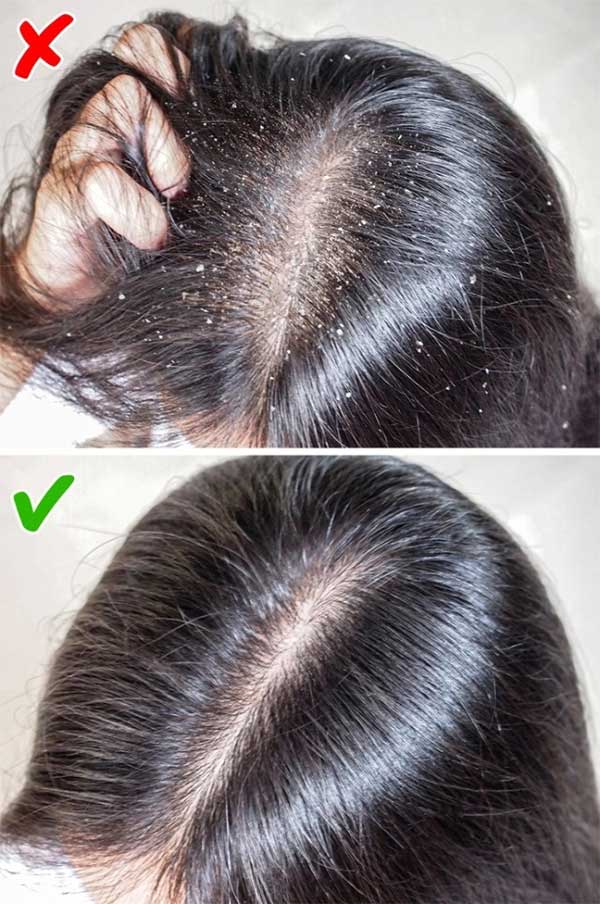Showering right before bed can make it difficult for you to fall asleep, increase the risk of weight gain, and potentially damage your hair.
Impact on Sleep
Taking a warm or hot shower before sleeping helps you relax and keep your body clean, but it can actually disrupt your sleep. When your body temperature drops to a certain level, it starts sending sleep signals to the brain, preparing you for a good night’s sleep. A hot shower raises your body temperature, making it harder for you to fall asleep. If you want to take a hot shower in the evening to relax, try to do so 1-2 hours before bedtime.

Taking a hot shower close to bedtime can raise body temperature and heart rate, leading to difficulty sleeping.
Exposure to high-temperature water can also increase blood pressure and put stress on the heart, causing it to beat faster. When your heart rate increases, it’s easier to toss and turn, making it harder to sleep.
Increased Risk of Weight Gain
Showering after eating and then going to bed can disrupt your digestive system, leading to bloating, indigestion, and potentially contributing to weight gain. If you must shower, wait at least 30 minutes after eating. After showering, give your body some time to stabilize before going to sleep.
Impact on Scalp and Hair

Showering right before bed can leave the scalp and hair damp, leading to various issues such as dandruff, itching, and greasy hair.
Some people often shower late and go to bed with wet hair, which can lead to chills and headaches. This habit can also further damage the hair. At this time, the scalp and hair do not have enough time to dry, creating an ideal environment for bacteria to thrive, causing issues such as itching, dandruff, irritation, and hair loss. Going to bed with wet hair can hinder blood circulation, making hair more prone to breakage and greasiness. After 9 PM is generally not a good time to wash your hair. If you must wash your hair, ensure it is dried before going to bed.


















































